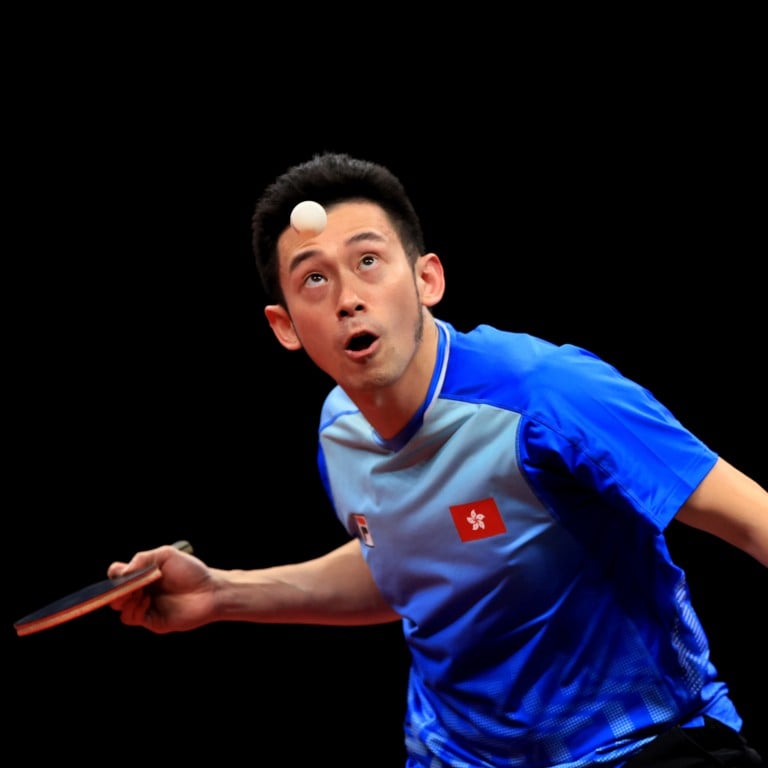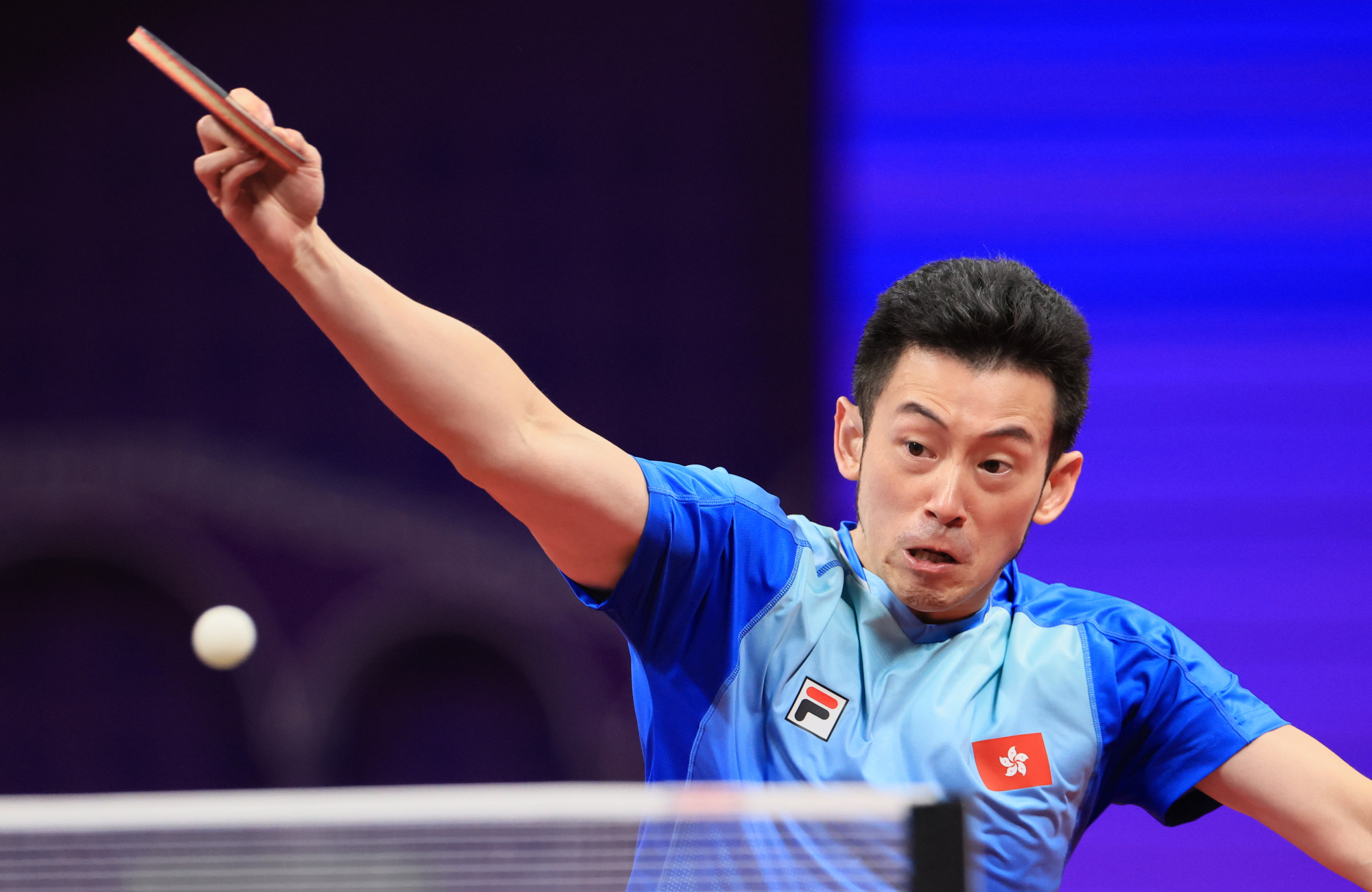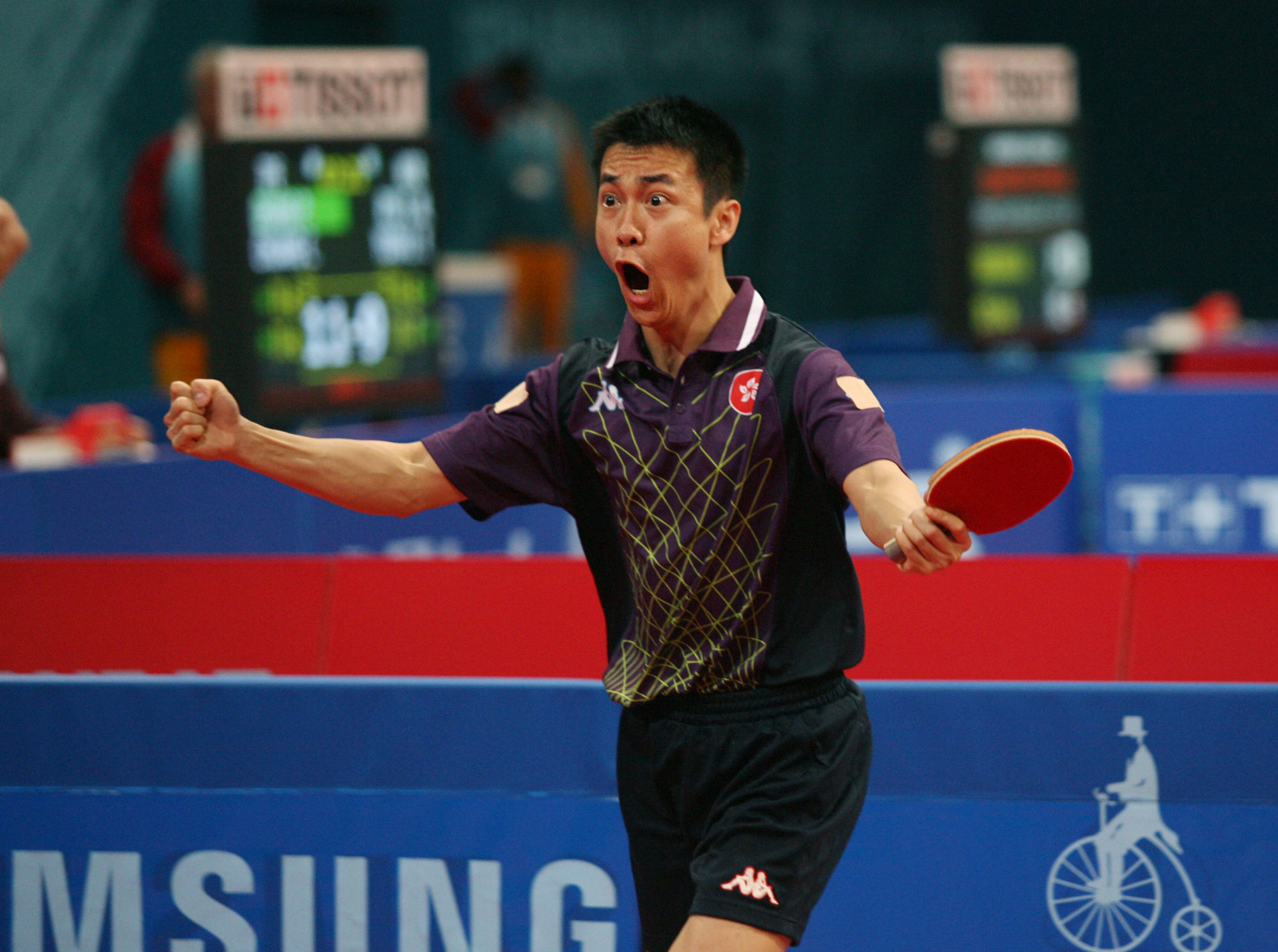
Asian Games 2023: Hong Kong’s Wong ends city’s table tennis losing streak with bronze in men’s singles
- Wong Chun-ting claims city’s first medal in singles since 2006 Games in Doha
- Says he hopes achievement in Hangzhou will inspire the next generation of athletes
Wong Chun-ting hopes securing the city’s first individual Asian Games table tennis medal in 17 years will prove an inspiration to his teammates and those who come after him.
The Hongkonger took bronze in Hangzhou on Monday after losing 4-2 in the men’s singles semi-final to China’s Wang Chuqin.
And in doing so, he helped maintain Hong Kong’s streak of winning at least one medal at the Games since Beijing in 1990, and its first in singles since Li Ching’s bronze at the Doha Games in 2006.
“Whether it is the Hong Kong team or the junior team, I hoped this is going to be an inspiration for them,” the 32-year-old Wong said. “I hope my spirit in training and competition can be an example for them.”
The world No 49 was guaranteed a maiden Games medal last Saturday after knocking out Taiwan’s star player Lin Yun-ju in a 4-3 thriller in the quarter-finals.

A loss to Wang, the world No 2, at the Gongshu Canal Sports Park Gymnasium ended his Games, but the new father said he was satisfied, but “still emotional”.
“In table tennis, we have many great players in Asia, and in particular China, the fact that I can get a medal here was unexpected,” he said, adding that he would now begin focusing on his next tournament.
“I want to maintain my standard over the next few years and seek the next breakthrough so that our team can go for more glories.”
Li, who moved to Hong Kong in 1999 and won Olympic silver in the men’s doubles five years later in Athens, believes Wong’s achievement sends a “massive” message.
“It’s like Wong is signalling to the rest of the team that he’s still the pillar and other players should play the catch-up game,” Li, the city’s women’s team coach, said.
“The men’s team didn’t win any medal in the past couple of editions and this is his third Games, so, it’s a milestone for him and there will be a positive impact for sure. I believe he can play until the Nagoya Games in 2026.”

While Li believed both medals almost 20 years apart carried the same meaning, he did not hold back when offering praise.
“The way he plays is more advanced and aggressive than I was,” he said. “His mentality has improved certainly over the past six months after a year of downward trend.
“His comprehensive abilities, in particular his mindset, have changed a lot. He’s more mature, the communications then and now are completely different and he deserved all this.”
Li, who has two daughters, also believes becoming a father has helped Wong.
“You need massive patience and time when taking care of a newborn, you listen to the baby’s needs and react,” he said.
“As a player, by listening more, Wong managed to get past the bottleneck, he’s more calm in the match and won’t panic as easily any more.”

 - Mike Chan.jpeg?itok=EQbwYm3R&v=1669714688)